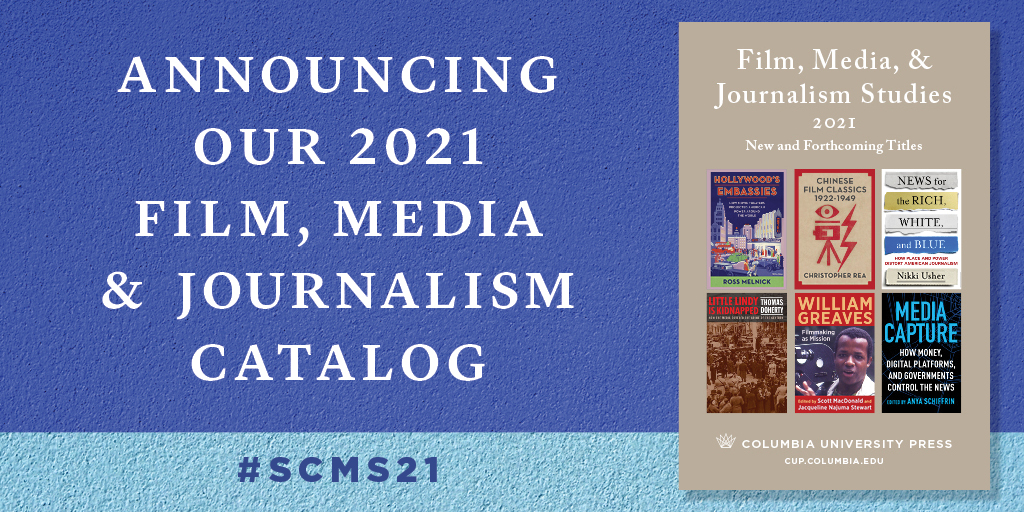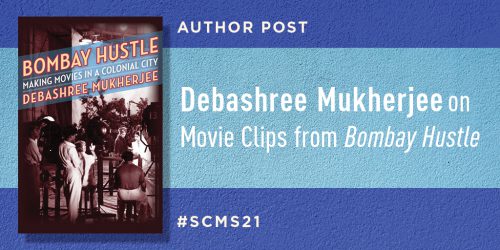Announcing Our 2021 Film, Media, and Journalism Studies Catalog

Letter from the editors:
We are very excited to be sharing with you the 2021 Film, Media, and Journalism Studies catalog. The recent resurgence of interest in the work of William Greaves is complemented and enhanced by the publication of William Greaves, edited by Scott MacDonald and Jacqueline Najuma Stewart. The book is the first comprehensive overview of Greaves’s career and illuminates how his films became a powerful tool for transforming how Black Americans were perceived by others and how they saw themselves.
We also have three new books from our Film and Culture series that showcase the place of film on local and global levels. Debashree Mukherjee’s Bombay Hustle is an ambitious history of the city’s film culture that offers new insights into media, modernity, and the late colonial city. Moving a few years ahead and across the globe, Keep ’Em in the East, by Richard Koszarski, describes how New York City’s independent and Black filmmakers as well as studio productions changed the direction of American cinema. Finally, the exertion of and resistance to American cultural influence is told via the history of movie theaters in Ross Melnick’s Hollywood’s Embassies.
We continue to publish books for students, researchers, and teachers in Wallflower’s Short Cuts series. These short introductory volumes provide focused accounts of key topics in contemporary film studies. This year, Terence McSweeney offers a close reading of recent superhero films, teasing out the ideological content hidden beneath the special effects. Karen McNally returns to classical Hollywood, examining Tinseltown’s long history of self-mythologizing through narratives of the meteoric rise (and fall) of movie stars, in The Stardom Film. And Warren Buckland’s Narrative and Narration provides a concise, clear, and thorough overview of narrative strategies in film, from classical Hollywood to contemporary “puzzle films.”
A multiplicity of threats to journalism and the free flow of reliable information has seemingly become a permanent feature of contemporary life. In Media Capture, edited by Anya Schiffrin, journalists and scholars examine the changing nature and peril of new forces seeking to take control of media around the world. Nikki Usher’s News for the Rich, White, and Blue considers how the collapse of local journalism has skewed news coverage to suit particular audiences and addresses the prospects for achieving a more equitable future in news. In Regardless of Frontiers, edited by Lee C. Bollinger and Agnes Callamard, contributors analyze the challenges to norms on the flow of information from the rise of populism and authoritarian governments to the disruptions introduced by the internet. Reporters themselves are also confronting new threats to their work and personal safety, and Susan McGregor’s Information Security Essentials examines how journalists can protect themselves. Finally, Francesco Marconi’s Newsmakers breaks down the pros and cons of how journalists can and should use AI in their reporting.
We hope you share our enthusiasm and excitement for these books. Thank you for your
interest, and we look forward to future conversations.
Sincerely,
Philip Leventhal, senior editor, film and media studies
Ryan Groendyk, editor for Wallflower






